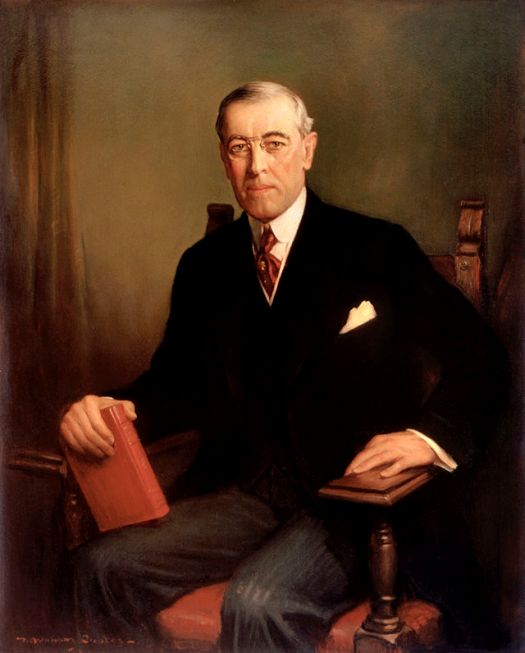Wilson came of Scots-Irish Calvinist stock on both sides of his family. Wilson’s Calvinism went deep. As a youth he experienced a characteristic ‘awakening,’ believing himself one of the elect. He retained throughout his life what he termed ‘faith, pure and simple,’ and an accompanying conviction that he was chosen to lead, to teach, and to inspire. He told a White House visitor in 1915: ‘My life would not be worth living were it not for the driving power of religion.’ Religious certitudes undoubtedly helped to bolster his political certitudes. Wilson, who played hardball politics always when he felt he needed to, insinuated that he did so not by personal choice but at the urgent direction of providence. No one, not even Lincoln, used the religious rhetoric of the grand American tradition more effectively, or succeeded so often in conveying the impression that to oppose his policies was not merely unreasonable but downright immoral.
Wilson came to the conclusion that America’s system of government, though the best in the world, could be further improved.
Princeton was a New Jersey institution noted chiefly for the training of Presbyterian clergymen when Wilson became its first lay president in 1902.
Since the Civil War, the United States had become by far the world’s richest country and the world’s largest economy, with an industrial economy which made all others on earth seem small.
Wilson, along with Lincoln and Reagan, was the president who used the apt and funny tale to most effect.
Wilson had never been a man to eschew force when he believed, as he always did, he had moral justice on his side.
When Wilson was forced to enter the war, he prudently set up an organization called the Inquiry, in which 150 academic experts, working in the American Geographical Society Building in New York, prepared in detail for the peacemaking. As a result, the American delegation was, throughout the peace-process at Versailles, by far the best informed and documented, and indeed was often the sole source of accurate information and up-to-date maps. The British diplomatic historian Harold Nicolson, who was present, commented: ‘Had the Treaty of Peace been drafted solely by the American experts, it would had been one of the wisest as well as the most scientific documents ever devised.’
Wilson promised justice to friends and enemies alike.
Wilson became obsessed with turning a League of Nations into reality, as the formula for an eventual system of world democratic government, with America at its head.

